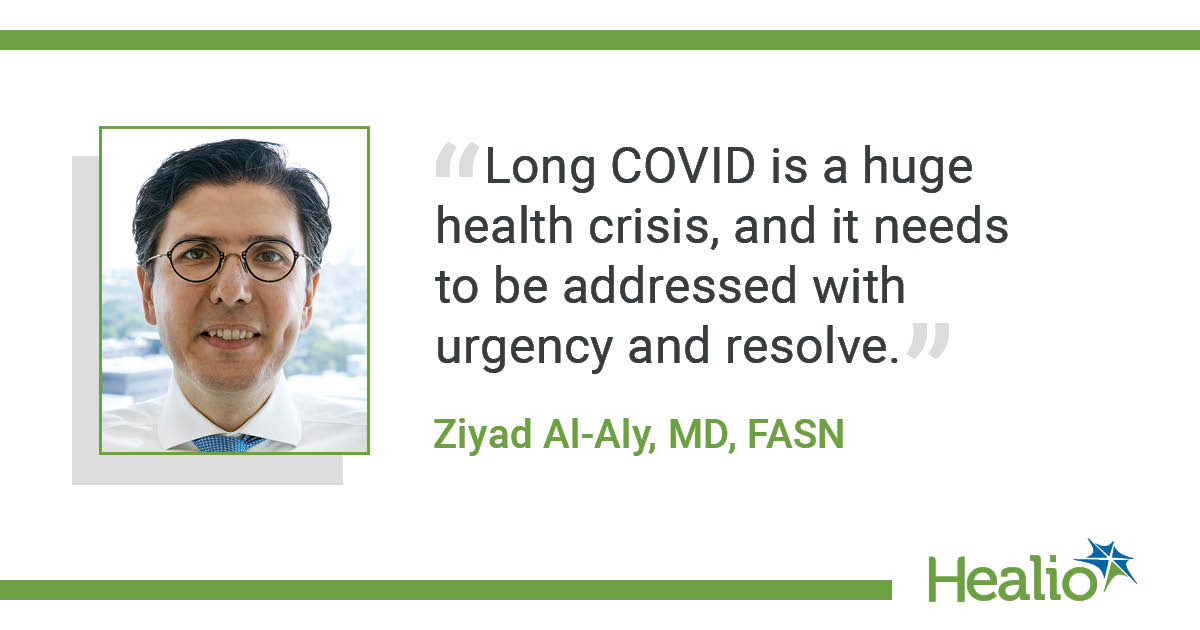Reducing Long COVID Risk Through COVID-19 Vaccination

Table of Contents
Understanding Long COVID and its Impact
Long COVID, also known as post-COVID-19 syndrome, encompasses a wide array of persistent symptoms that can last for weeks, months, or even years after a COVID-19 infection. The long-term health consequences can be severe, impacting multiple organ systems and significantly reducing quality of life. The societal burden of Long COVID is substantial, affecting productivity, healthcare resources, and overall economic well-being.
- Common Long COVID Symptoms:
- Extreme fatigue
- "Brain fog" (cognitive dysfunction)
- Shortness of breath
- Chest pain
- Heart palpitations
- Joint pain
- Loss of taste or smell
- Sleep disturbances
- Anxiety and depression
The unpredictable nature and diverse range of Long COVID symptoms make it a challenging condition to diagnose and treat, highlighting the critical need for preventative measures, such as vaccination.
How COVID-19 Vaccines Protect Against Long COVID
COVID-19 vaccines work by training your immune system to recognize and fight off the virus. By reducing the severity of the initial infection, vaccines significantly lower the viral load in your body. A lower viral load translates to a decreased risk of developing the long-term complications associated with Long COVID. This protective effect is supported by numerous studies demonstrating a strong correlation between vaccination and a reduced incidence of Long COVID.
- Key Findings from Studies:
- Vaccinated individuals experience milder symptoms and shorter illness duration.
- Vaccination significantly reduces the risk of hospitalization and severe illness, both major risk factors for Long COVID.
- Studies indicate that vaccination may reduce the likelihood of developing specific Long COVID symptoms, such as fatigue and brain fog.
The immune response generated by the vaccine helps your body swiftly neutralize the virus, minimizing the damage it can inflict on your organs and systems, thus lowering your chances of experiencing post-COVID-19 conditions.
Vaccination and Reduced Hospitalization/Severe Illness Risk
One of the most significant benefits of COVID-19 vaccination is its ability to prevent severe illness. Severe COVID-19 is a major risk factor for developing Long COVID. By reducing the severity of infection, vaccines drastically decrease the likelihood of hospitalization and admission to intensive care units (ICUs).
- Statistical Data (Illustrative Example): Studies have shown that vaccinated individuals are significantly less likely to require hospitalization (e.g., a 70-80% reduction) compared to unvaccinated individuals. Similarly, ICU admission rates are drastically lower among vaccinated populations.
Preventing severe illness is crucial not only for immediate health outcomes but also for long-term well-being, reducing the risk of the chronic conditions associated with Long COVID.
Addressing Vaccine Hesitancy and Misinformation
Despite overwhelming evidence supporting the safety and efficacy of COVID-19 vaccines, vaccine hesitancy persists. Addressing concerns and debunking misinformation are essential steps in promoting widespread vaccination.
-
Common Concerns and Misconceptions:
- Fear of side effects
- Misinformation about vaccine composition
- Belief that vaccines are ineffective
-
Evidence-Based Responses:
- Vaccine side effects are generally mild and temporary.
- Vaccines undergo rigorous testing and approval processes.
- Numerous studies demonstrate high vaccine efficacy in preventing severe illness, hospitalization, and death.
It is vital to rely on credible sources of information, such as your healthcare provider or reputable public health organizations, to ensure you have accurate and up-to-date information about COVID-19 vaccines.
Staying Updated and Boosters for Long-Term Protection
Maintaining long-term protection against COVID-19 and Long COVID requires staying up-to-date with recommended vaccine schedules, including booster shots. Booster doses enhance your immune response and provide continued protection against evolving virus variants.
- Importance of Boosters: Booster shots significantly increase antibody levels and broaden the immune response, offering prolonged protection against infection and severe outcomes.
Regularly updating your vaccination status ensures optimal protection against Long COVID and contributes to overall population immunity. Consult your healthcare provider to determine the appropriate vaccine schedule for your individual needs and access information on vaccine availability in your area.
Conclusion: Protecting Yourself from Long COVID Through Vaccination
In summary, COVID-19 vaccination is a powerful tool in reducing your risk of developing Long COVID. By significantly lessening the severity of initial infection, vaccines decrease the likelihood of experiencing the debilitating long-term effects associated with this condition. Getting vaccinated and staying up-to-date with booster shots are crucial steps in protecting yourself and your community. Consult your healthcare provider to discuss COVID-19 vaccination and its vital role in preventing Long COVID and safeguarding your long-term health. Don't delay—protect yourself from Long COVID through vaccination today.

Featured Posts
-
 Kangaroo Overpopulation And The South Australian Drought Crisis
May 29, 2025
Kangaroo Overpopulation And The South Australian Drought Crisis
May 29, 2025 -
 Venlo Schietincident Met Dodelijke Afloop
May 29, 2025
Venlo Schietincident Met Dodelijke Afloop
May 29, 2025 -
 Bryan Cranston Offers Update On Malcolm In The Middle Reboot Release Date Still Uncertain
May 29, 2025
Bryan Cranston Offers Update On Malcolm In The Middle Reboot Release Date Still Uncertain
May 29, 2025 -
 Tyler Perrys Consistent Success On Bet A Six Year Winning Streak
May 29, 2025
Tyler Perrys Consistent Success On Bet A Six Year Winning Streak
May 29, 2025 -
 Pokemon Shining Revelry Expecting An Uphill Battle For Completion
May 29, 2025
Pokemon Shining Revelry Expecting An Uphill Battle For Completion
May 29, 2025
